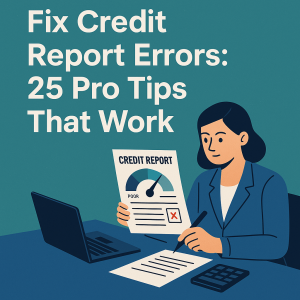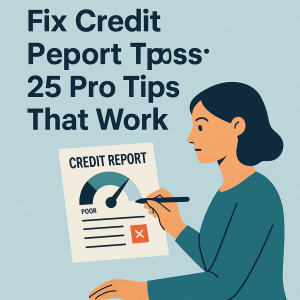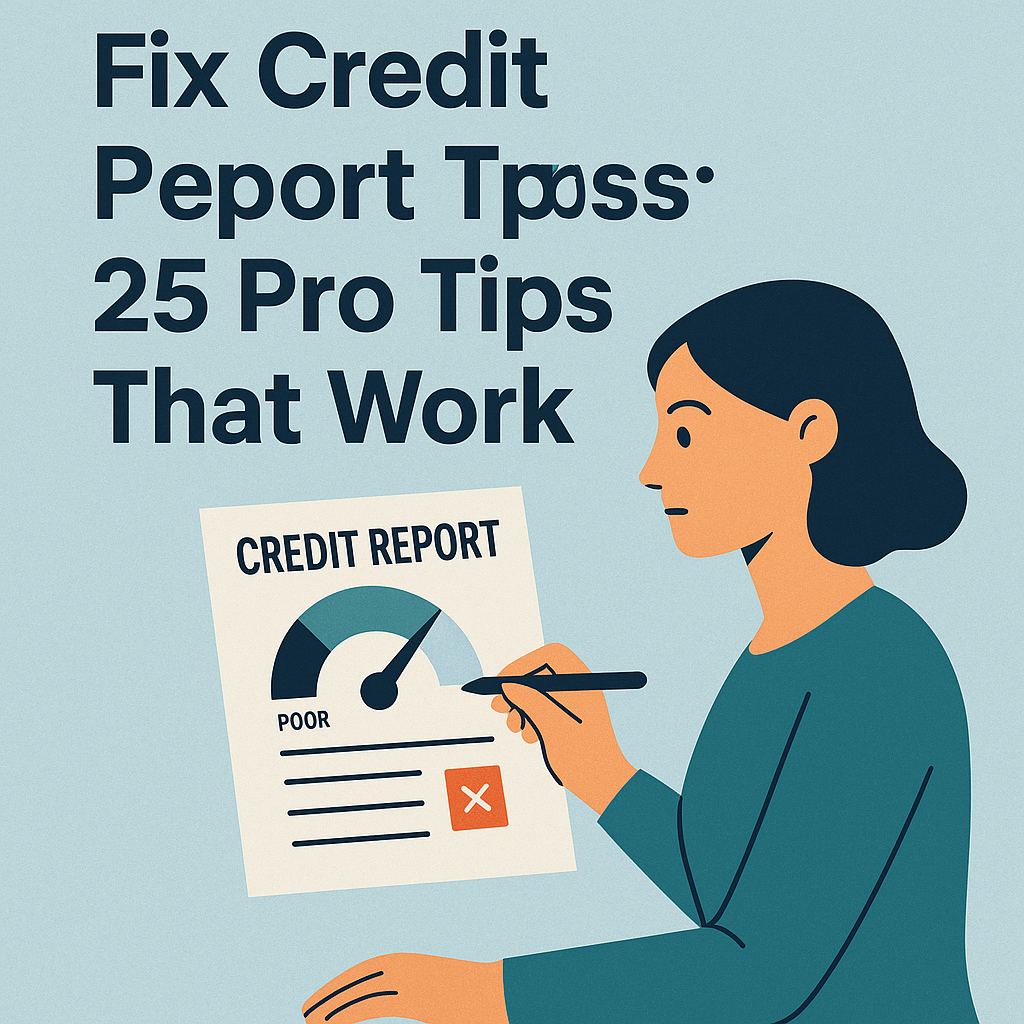Your credit report plays a significant role in your financial health. It affects your ability to qualify for loans, rent an apartment, or even get a job. But what if it contains an error? You’re not alone. According to the FTC, one in five Americans has at least one mistake on their credit report. The good news? You can dispute these errors and get them corrected.
In this guide, I’ll walk you through how to dispute credit report errors like a pro successfully. As a credit finance expert based in the U.S., I’ve helped thousands of consumers navigate this process. Follow these 25 actionable tips to protect your credit score and financial future.

1. Get Copies of All Three Credit Reports
Request your free reports from Experian, Equifax, and TransUnion at AnnualCreditReport.com.
2. Review Every Detail Carefully
Check your personal information, accounts, balances, payment history, and public records.
3. Highlight Any Inaccuracies
Mark incorrect account balances, late payments you never missed, or accounts that don’t belong to you.
4. Check for Duplicate Accounts
Sometimes, the same debt is listed multiple times, which can unfairly hurt your score.
5. Look for Outdated Information
Negative items should generally fall off after 7 years.
6. Dispute Errors Online
Each bureau allows you to file disputes through their websites. It’s quick and trackable.
7. Send Disputes by Certified Mail
For added documentation, send your disputes with the return receipt requested.
8. Use a Clear, Concise Letter
Include your name, contact info, the disputed item, and a brief explanation.
9. Attach Supporting Documents
Proofs such as payment records, identity verification, or bank statements strengthen your case.
10. Dispute with the Furnisher Too
Contact the lender or creditor reporting the error to ensure they update their records.
11. Keep a Paper Trail
Document every step, including copies of letters and proof of mailing.
12. Mark Your Calendar
Credit bureaus have 30-45 days to investigate. Track the timeline.
13. Follow Up Promptly
If you don’t hear back, follow up and reference your original dispute.
14. Escalate if Needed
Still unresolved? File a complaint with the CFPB or your state attorney general.
15. Freeze Your Credit If Fraud Is Involved
Prevent further damage while investigating identity theft.
16. Monitor Your Credit Score
Watch for changes once corrections are made—free tools like Credit Karma help.
17. Don’t Rely on Just One Bureau
Errors may appear on one report but not the others.
18. Be Persistent
Some disputes require multiple rounds. Stay the course.
19. Dispute One Item at a Time
This helps keep things organized and focused.
20. Avoid Using Dispute Services
Many charge fees for things you can easily do yourself.
21. Correct Mixed File Errors
Sometimes, credit files get combined. Make sure your identity is distinct.
22. Opt Out of Pre-Screened Offers
This reduces exposure if identity theft is suspected. Visit OptOutPrescreen.com.
23. Don’t Ignore Medical Debt Errors
Even slight inaccuracies can impact your score significantly.
24. Request a Statement of Dispute
If an item isn’t removed, but you still disagree, add a personal statement.
25. Stay Educated
Credit laws evolve. Follow updates from the CFPB or trusted financial sources.

Final Thoughts: Take Control of Your Credit Today
Credit report errors can cost you thousands over a lifetime—but they don’t have to. By taking charge, staying organized, and acting decisively, you can correct mistakes and rebuild your credit profile. Start today by requesting your free reports and identifying potential issues. You have the tools. Now, it’s time to put them to use.
Need more help? Subscribe to our newsletter for expert credit repair tips and updates.
Frequently Asked Questions (FAQs):
1. How do I dispute an error on my credit report?
You can dispute credit report errors online through Experian, Equifax, or TransUnion or by mailing a dispute letter with supporting documents directly to the bureau.
2. How long does a credit dispute take to resolve?
Credit bureaus typically investigate and respond to disputes within 30 to 45 days. It’s essential to track your timeline and follow up if needed.
3. Will disputing a credit report error hurt my score?
No, filing a dispute does not negatively impact your credit score. Correcting errors can help improve it over time.
